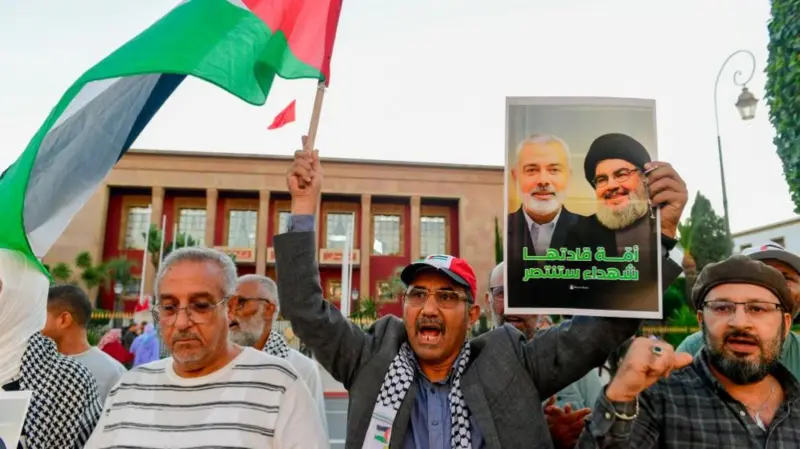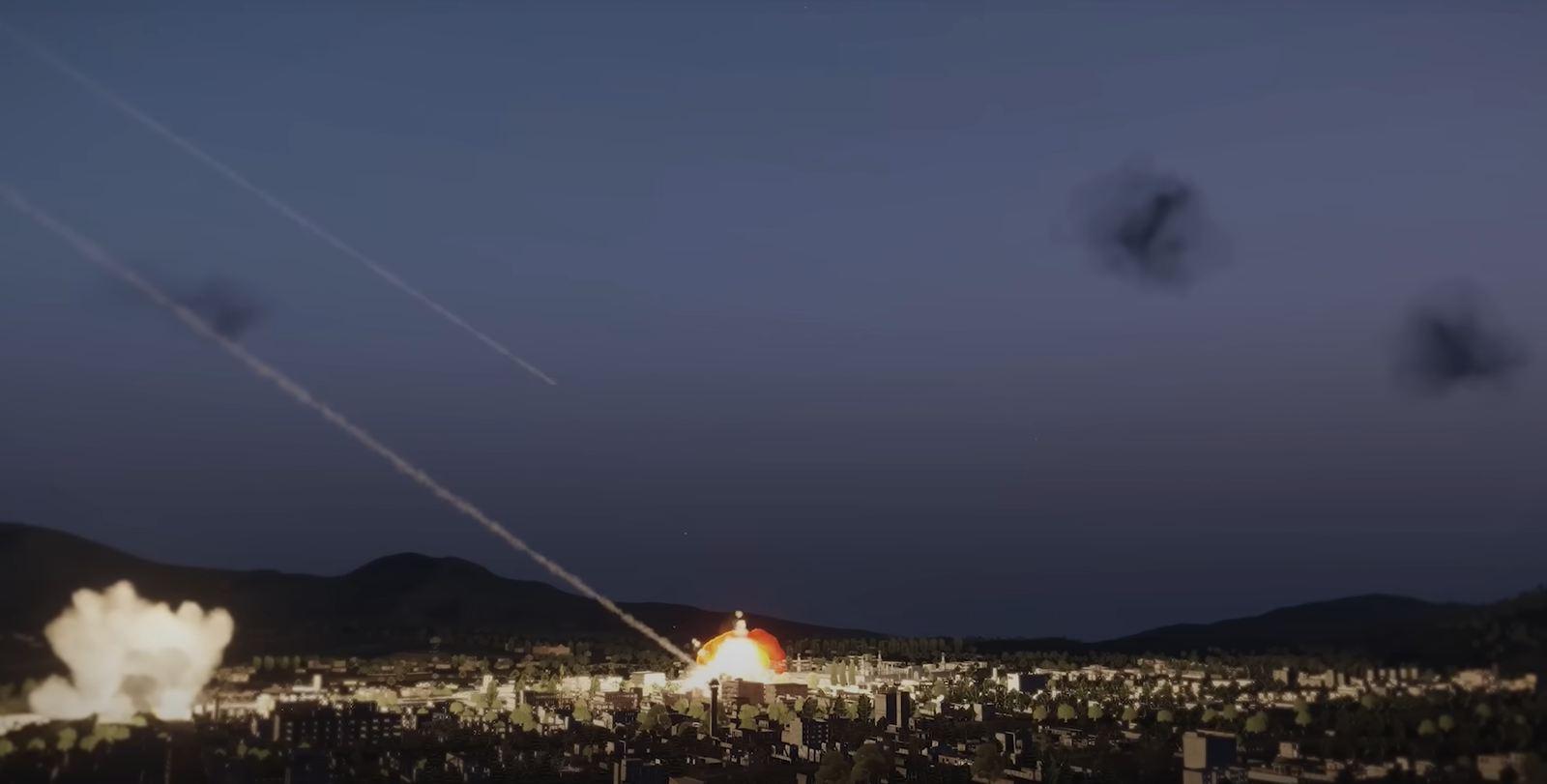Israeli Strikes in Lebanon Intensify After Killing Hezbollah Leader, Iran Vows Revenge

Beirut, Lebanon – September 29, 2024
The conflict between Israel and Hezbollah has escalated significantly, with Israeli airstrikes continuing to pound Lebanon, resulting in over 15 reported deaths and numerous injuries. This development comes on the heels of the Israeli military’s confirmation of killing Hezbollah’s Secretary-General, Hassan Nasrallah.
Israeli Military Statement
“The Israeli Defence Forces (IDF) will continue to target Hezbollah’s military infrastructure and personnel, disrupting their ability to wage war against Israel.”
Hezbollah’s Response on Israeli strikes in Lebanon

Hezbollah has vowed to retaliate against Israel, with a spokesperson stating:
“The Zionist entity will pay a heavy price for its cowardly assassination of our leader. We will not rest until we have avenged his martyrdom.”
Iranian Involvement
Iran, Hezbollah’s primary backer, has pledged to support Hezbollah’s retaliation efforts:
“Iran will not stand idly by as Israel continues its aggression. We will provide all necessary assistance to Hezbollah to defend Lebanese sovereignty.”
Regional Implications
The escalating conflict has sparked concerns of regional instability:
- Syrian Involvement: Syria has warned Israel against targeting its territory.
- Lebanese Government: Lebanon’s government has called for international intervention.
- Palestinian Reaction: Palestinian factions have condemned Israel’s actions.
International Response on Israeli strikes in Lebanon
Global leaders are urging restraint:
- US Secretary of State: “We support Israel’s right to self-defence but urge caution.”
- EU Foreign Policy Chief: “The EU condemns violence and calls for immediate de-escalation.”
- Russian Foreign Ministry: “We regret the loss of life and urge all parties to negotiate.”
Humanitarian Crisis
The ongoing airstrikes have resulted in:
- Displacement: Over 10,000 Lebanese have fled their homes.
- Infrastructure Damage: Extensive damage to roads, bridges, and buildings.
- Humanitarian Aid: International organizations are scrambling to provide assistance.
Hezbollah’s Succession
The process of selecting a new Hezbollah leader is underway:
- Naim Qassem: Deputy Secretary-General and potential successor.
- Mohammad Raad: Hezbollah’s parliamentary leader.
Israeli Objectives on Israeli strikes in Lebanon
Israel’s goals include:
- Weakening Hezbollah: Disrupting Hezbollah’s military capabilities.
- Deterrence: Deterring future attacks from Hezbollah.
Conclusion
The conflict between Israel and Hezbollah has reached a critical juncture. With Iran’s involvement and regional tensions escalating, the international community must intervene to prevent further destabilization.
Sources:
- Israeli Defence Forces (IDF)
- Hezbollah official statements
- United Nations News
- Reuters
- Associated Press
Important Terms:
- Hezbollah
- Hassan Nasrallah
- Israeli Defence Forces (IDF)
- Lebanon War
- Shia Militant Group
Summary of Israeli strikes in Lebanon
- Israel says it hit “dozens” more Hezbollah targets overnight, a day after announcing the death of Hezbollah leader Hassan Nasrallah
- Lebanese media says at least 15 people were killed in the overnight strikes
- Iran’s supreme leader says Nasrallah’s death “will not go unavenged”
- Nasrallah was one of the best known and most influential figures in the Middle East
- Israeli PM Benjamin Netanyahu says Israel “settled the score” with Nasrallah’s death
- US President Joe Biden says his death is a “measure of justice for his many victims”, and again calls for a ceasefire
There is a tense and anxious mood in Lebanon, as the country waits to see how Hezbollah is going to respond to the killing, by Israel, of the group’s leader Hassan Nasrallah.
He was one of the most powerful, and controversial, men here, leading an organisation often described as a state within the state.
Hezbollah is considered a terrorist group by the UK, the US, and others but, in Lebanon, it is more than a militia: it is a political party, with representation in parliament and a social organisation, with significant support.
Prime Minister Najib Mikati, who announced three days of mourning for Nasrallah, warned that his country was facing a dangerous moment, as Israel indicates its offensive will not stop, and a ground invasion of southern Lebanon seems imminent.
Hezbollah is weakened, but has not been defeated. Far from it. It remains a formidable force, with thousands of battle-hardened fighters and tens of thousands of rockets, including missiles capable of striking deep inside Israel.
Concerns remain that this conflict could go beyond Lebanon and include other Iranian-backed groups in the region, including the Houthis in Yemen and militias in Iraq and Syria.
Across Lebanon, hospitals and shelters are already struggling to cope after two weeks of intense Israeli attacks that have killed at least 1,000 people and displaced tens of thousands more.


Average Rating